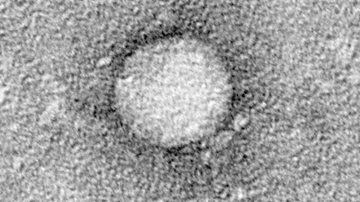New approach to chronic hepatitis B treatment
In chronic hepatitis B patients, a discontinuation of treatment can lead to cure: as scientists from the Hannover Medical School (MHH) have discovered. DZIF researcher Prof Markus Cornberg and his team from the MHH Department of Gastroenterology, Hepatology and Endocrinology have published these findings in the Journal of Infectious Diseases. Co-first authors are biologist Franziska Rinker and clinician Christoph Höner zu Siederdissen.
Chronic hepatitis B affects approximately 250 million people worldwide, making it one of the most common global infectious diseases, and can cause liver cancer. So-called nucleoside and nucleotide analogues (NUCs), which are administered in tablet form, can help treat but not cure the disease. “This is because they are unable to destroy hepatitis B virus minichromosomes in the liver cell nucleus and hence do not inhibit viral protein production—but they do inhibit viral replication. When treatment is discontinued, the viral replication once again increases”, explains Professor Markus Cornberg, whose professorship is funded by the German Center for Infection Research. This is why treatment has to be continued permanently—or at least until the immune system is able to eliminate an envelope protein essential to the virus. Only then can a patient be deemed cured. “This is the case in only about 0.5 percent of patients per year. When the active agent interferon is administered to support the immune system, this percentage increases slightly to between five and ten percent of patients per year. Interferon, however, has to be injected and has side effects.”
As an alternative, the team tested 15 patients without advanced liver fibrosis, in a study funded by the DZIF, to investigate whether discontinuation of treatment with NUCs is effective. In most patients, treatment had to be resumed because the viruses started replicating again after the treatment had been discontinued. However, a year later these patients had lower envelope protein levels and, after an even longer period of time, it was completely absent in three patients who could subsequently end their treatment. Indeed, the scientists discovered that a discontinuation of therapy and the virological relapse stimulated a few messenger substances in the immune system.
“For patients with chronic hepatitis B without marked fibrosis, a controlled discontinuation of treatment after at least three years of treatment is a good way of accelerating the loss of envelope protein,” says Professor Cornberg.
To the Hannover Medical School press release (in German only)




